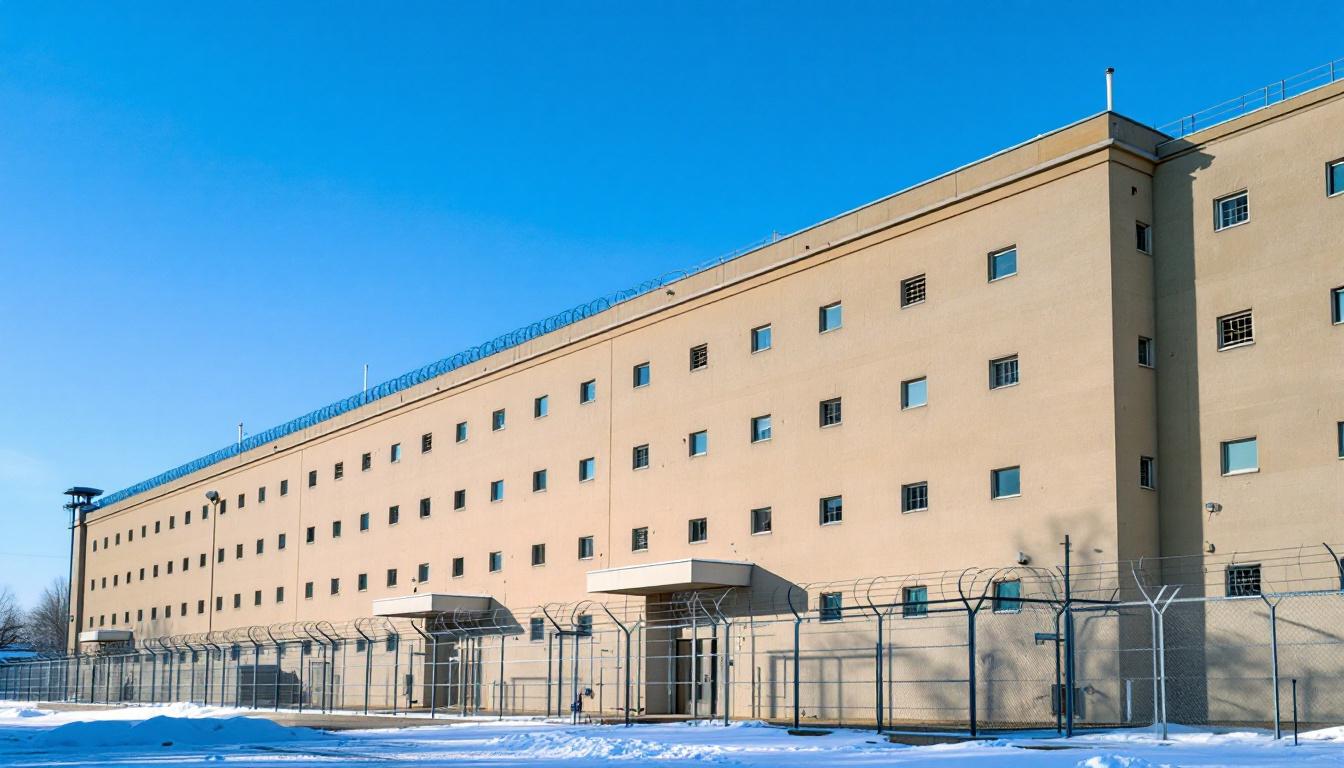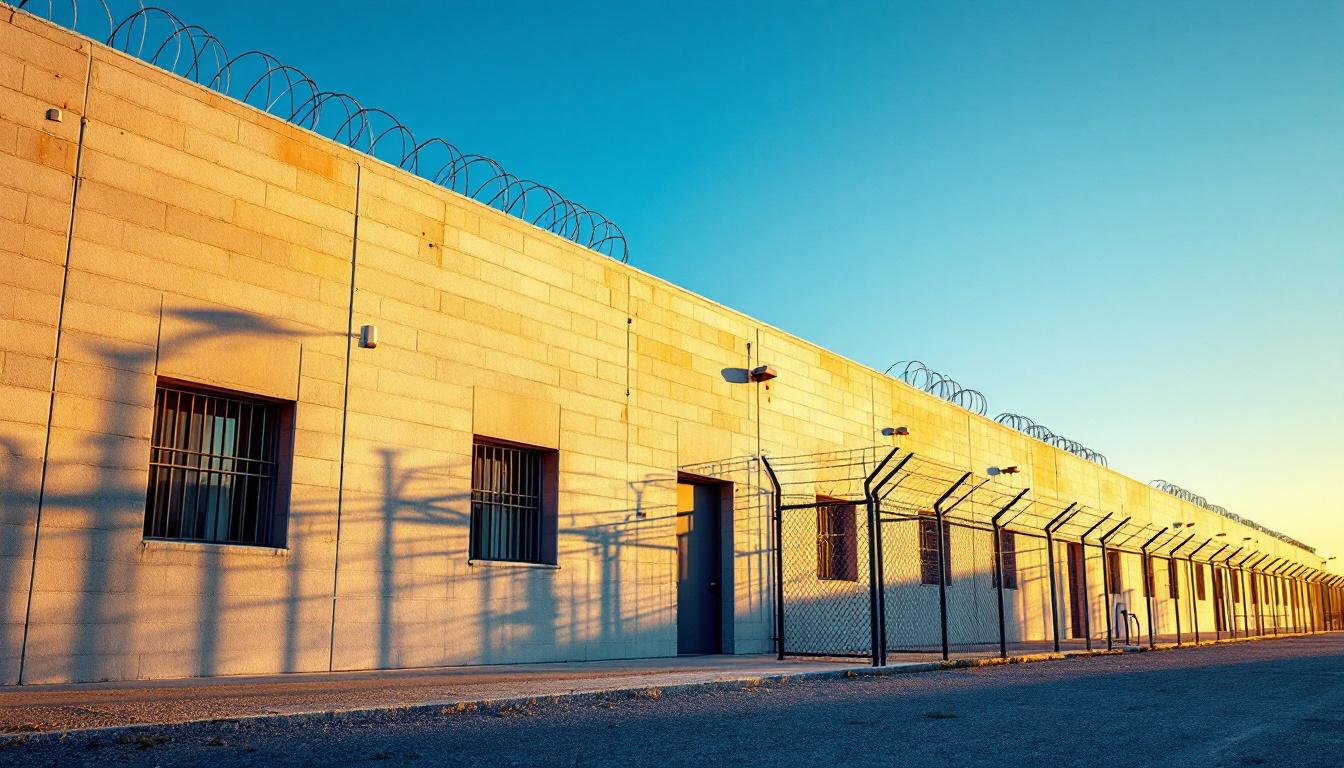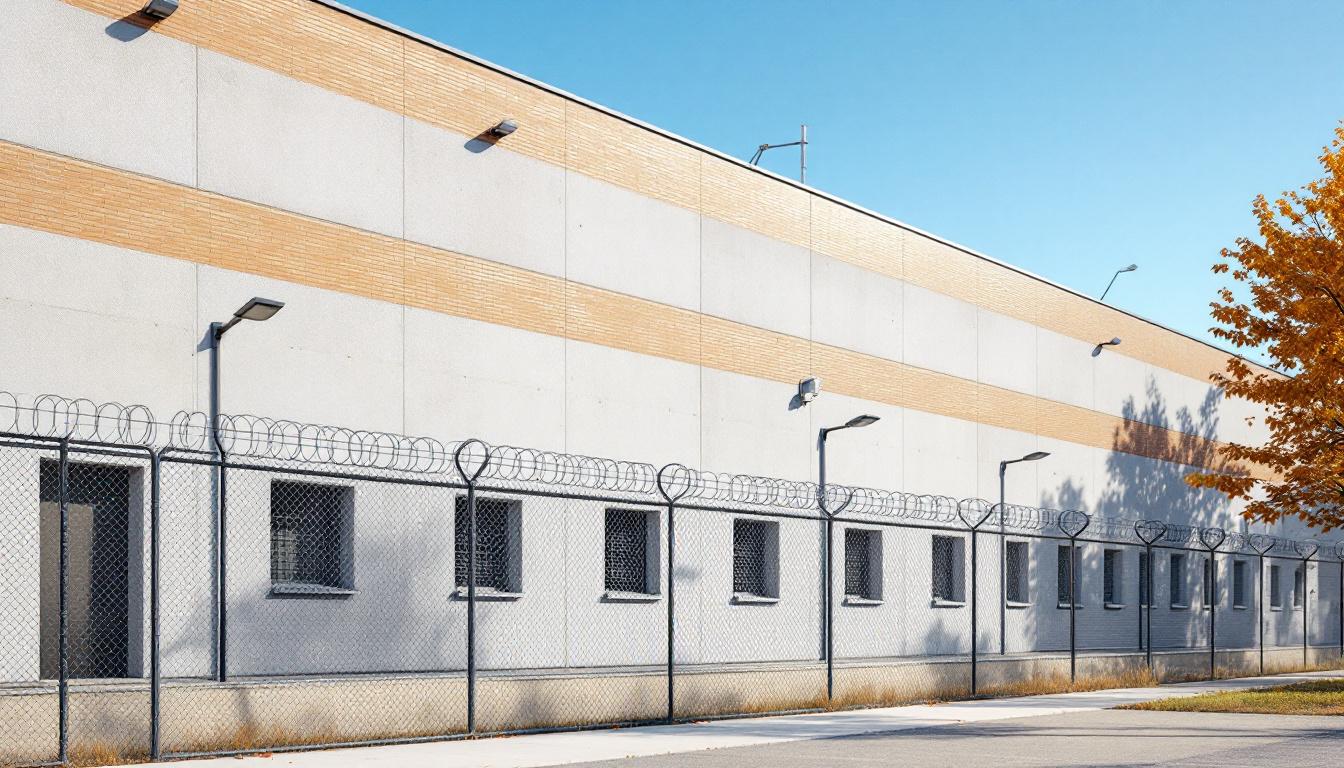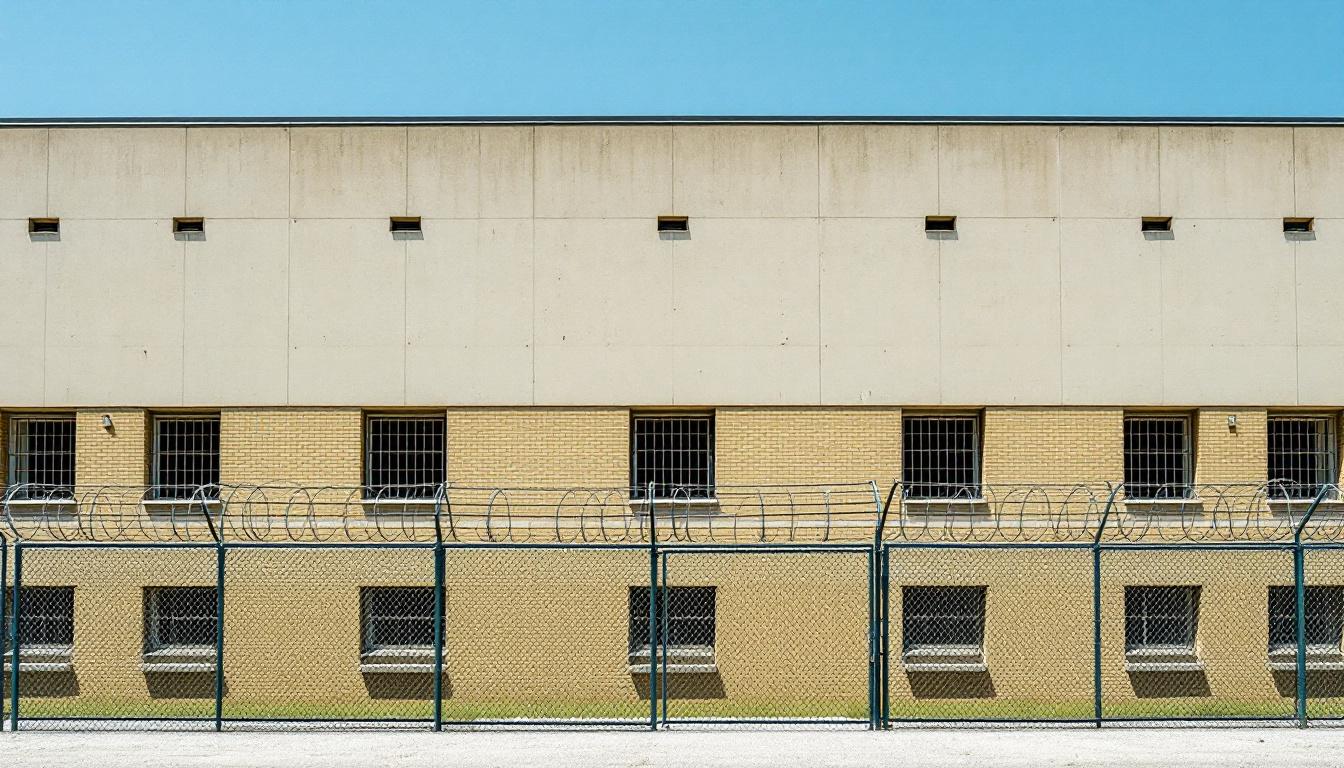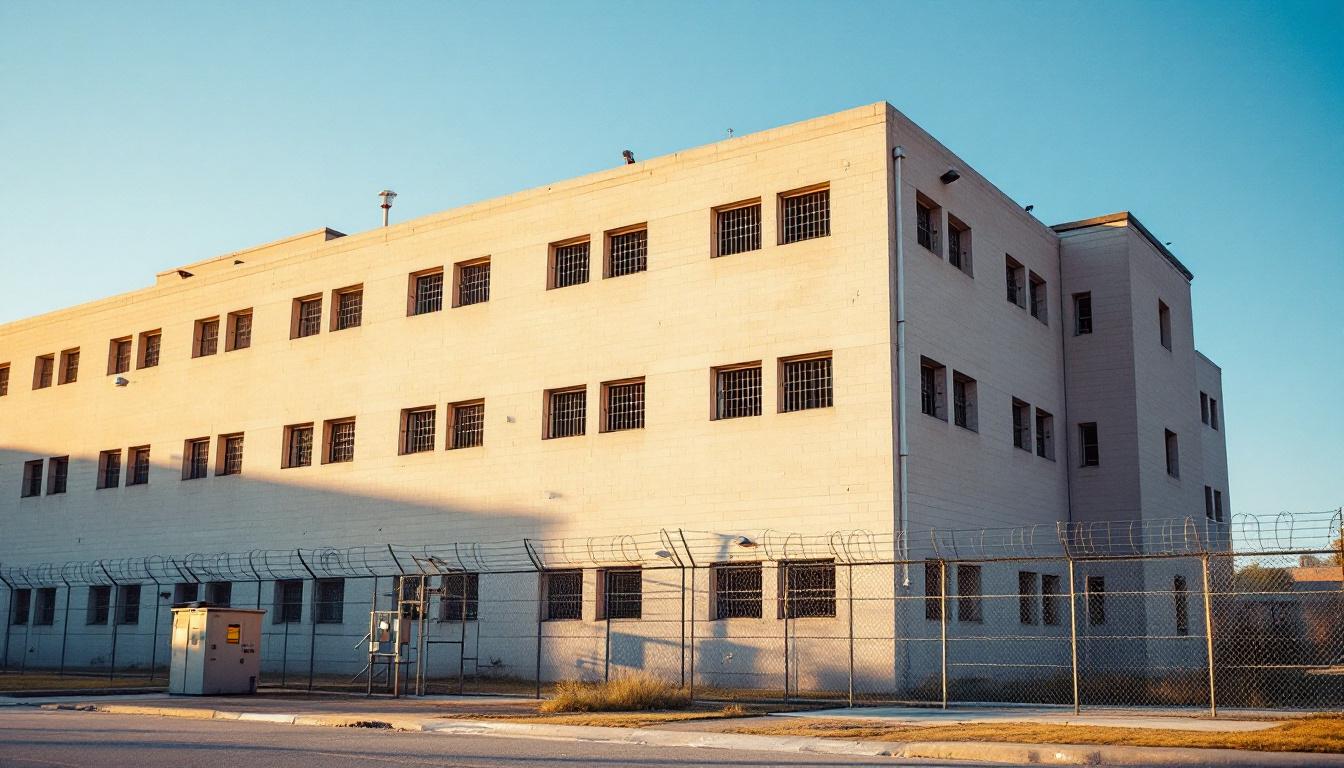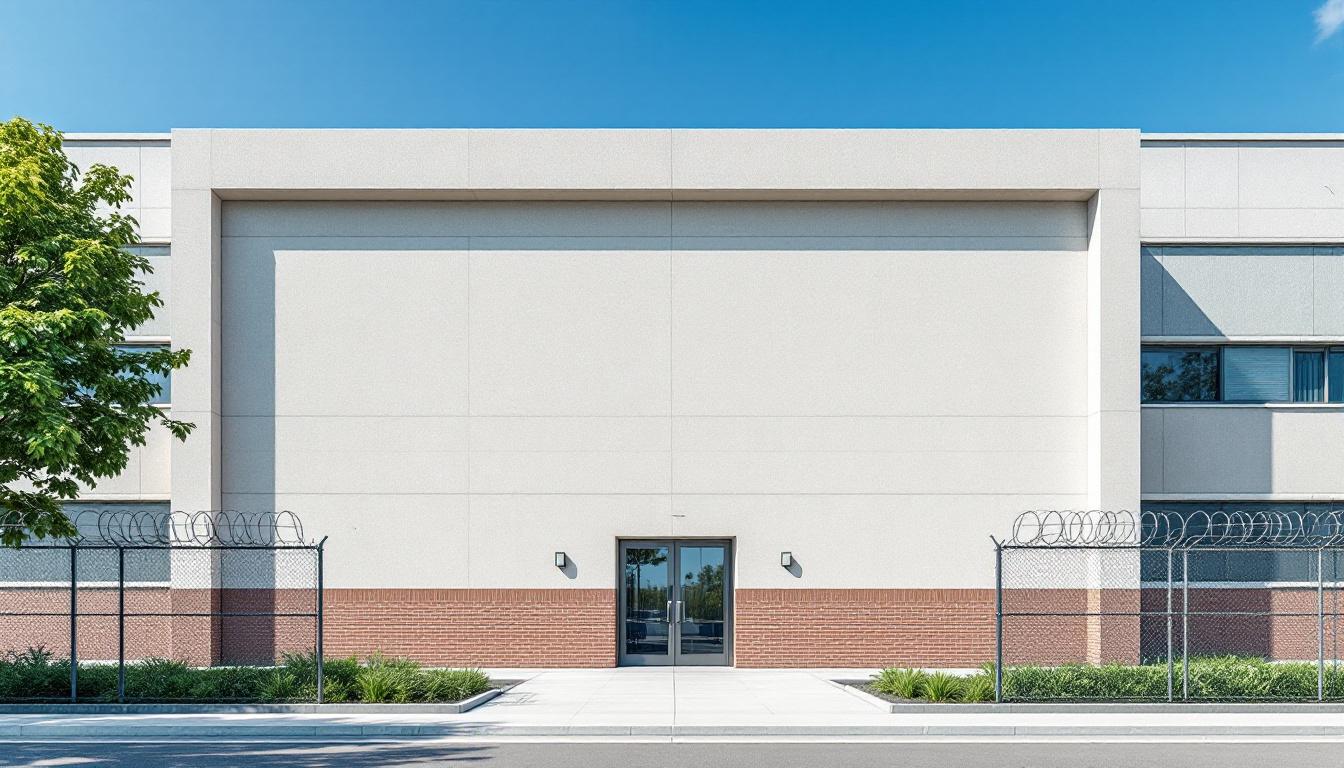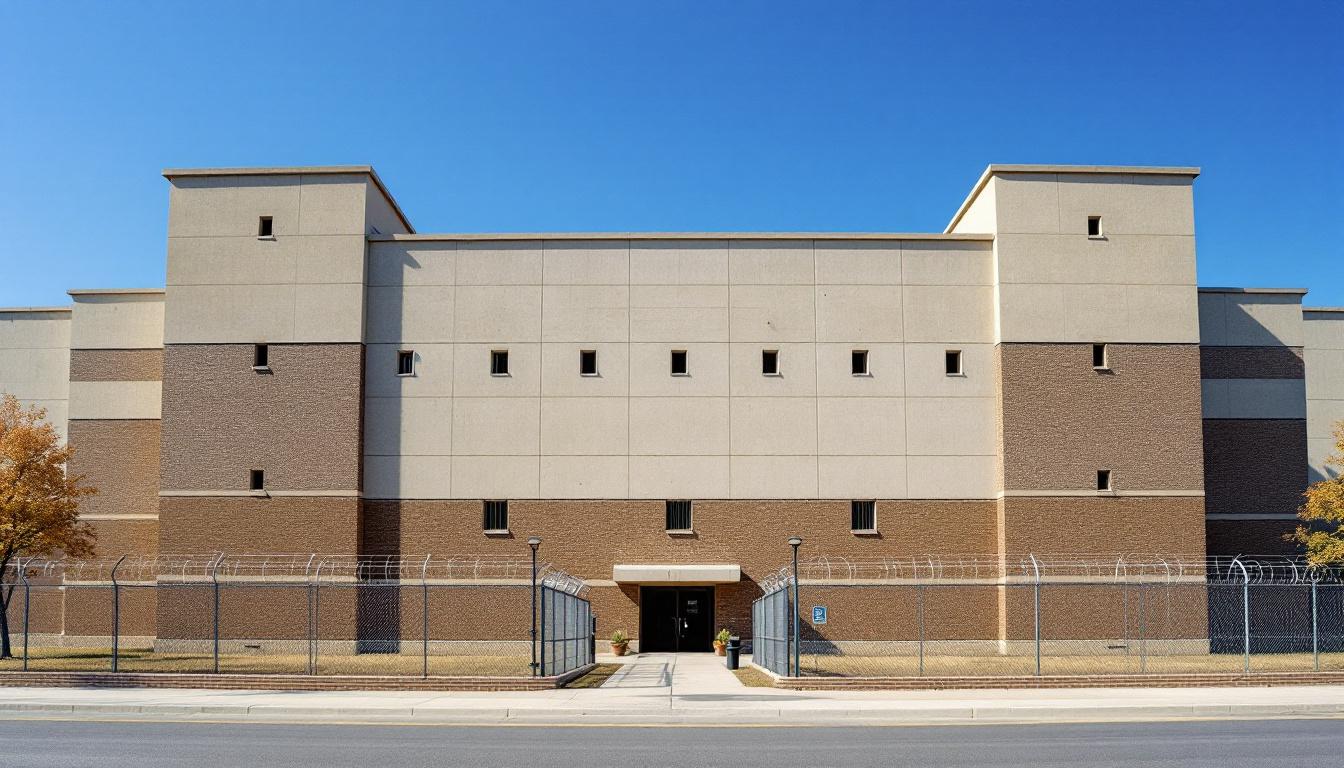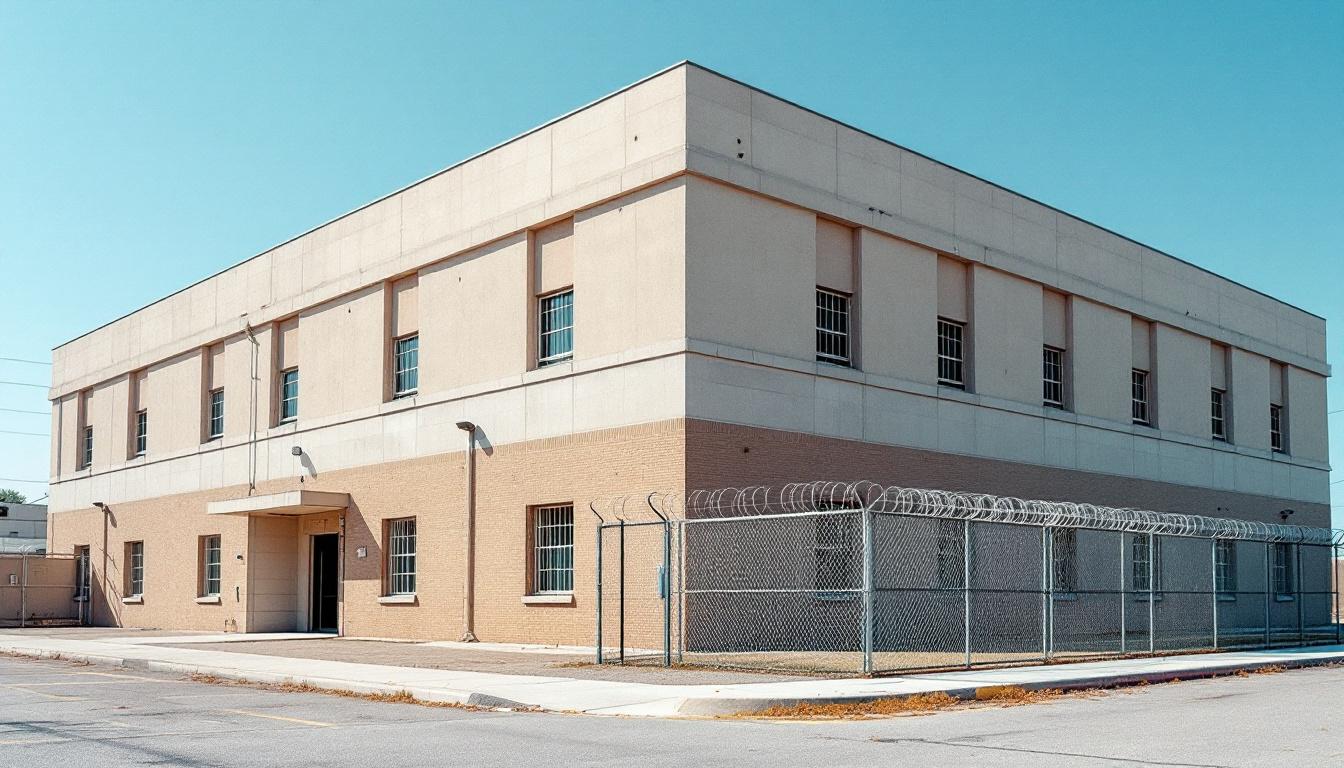
Quick Navigation
How to contact an inmate at Athens-Clarke County Jail
This comprehensive guide will walk you through how to connect with an inmate at Athens-Clarke County Jail. Follow the steps below to find an inmate and send letters and photos:
- Search for the inmate using our search tool below
- Create your account or log in to Penmate
- Write your message (up to 6,000 characters)
- Send instantly - inmates receive printed copies daily
Find an Inmate
Search for an inmate to start communicating today
Tip: You can search by first name, last name, or inmate ID number
To contact a person at Athens-Clarke County Jail start by searching for the person on the official facility website. Perform a search by following these steps:
- Step 1: Enter their first name and last name into the search form and click "Search"
- Step 2: Locate their inmate record
- Step 3: Write down their Inmate ID and any housing information provided
Important! Be sure to enter the person's full name. Nicknames should not be used.
How to Send Messages to Inmates

You can use your phone or computer to send emails, letters, and photos to an inmate. Messages are sent electronically to inmate tablets or kiosks at the facility. If you would like to send a message, start by searching for an inmate at Athens-Clarke County Jail.
Sending Photos and Postcards

A great way to send love and support to a loved one at Athens-Clarke County Jail is to send photos and postcards. It only takes a few minutes to send photos from your phone and it makes a huge difference. You can also mail postcards with words of support and inspiration, or design your own postcard for special moments like birthdays and holidays.
Important! Be sure not to send any explicit photos or they may not be approved by the facility. You can also use a photo printing app like Penmate to make sure your photos are printed at the correct size (4x6 or 3x5) and are mailed according to the rules and regulations of Athens-Clarke County Jail.
Frequently asked questions about Athens-Clarke County Jail
-
How long does it take to deliver a message?
If you're sending an email message your letter is usually delivered within 24-48 hours. For messages sent via mail you should expect delivery within 3-7 days. All messages will need be approved by Athens-Clarke County Jail.
-
How much does it cost to send a message to Athens-Clarke County Jail?
You can send a message free using your phone or mail a message via USPS for the price of a $0.60 stamp and envelope. You can also purchase credits or e-stamps from services starting at $1.99.
-
What services can I use to contact an inmate at Athens-Clarke County Jail?
Penmate
You can use Penmate to send letters and photos to an inmate from your phone. It's an easy way to stay in touch during your loved one's incarceration. Use the inmate locator to find an inmate's location and contact information, then you can send messages within a few minutes.
Securus messaging
Securus may be another option for communicating with an inmate at Athens-Clarke County Jail. You can create a friends and family account and purchase credits to send messages. All messages will be reviewed and must be approved by the facility.
JPay
Some county jails and state prisons may support sending messages with JPay. You must register an account with the system, find your loved one, and purchase stamps to send messages. For some locations you can also attach photos.
Smart Jail Mail
You may also check if Smart Jail Mail is available at Athens-Clarke County Jail. Smart Jail Mail is operated by Smart Communications and has contracted with some state and county jails. After purchasing credits, your messages and photos are sent to the facility, printed out, and then handed out to your loved one.
-
What is the mailing address of Athens-Clarke County Jail?
Mailing address:
Athens-Clarke County Jail
3015 Lexington Rd
Athens, GA 30605
Phone: (706) 613-3270Business hours:
- Monday: Open 24 hours
- Tuesday: Open 24 hours
- Wednesday: Open 24 hours
- Thursday: Open 24 hours
- Friday: Open 24 hours
- Saturday: Open 24 hours
- Sunday: Open 24 hours
-
What are the visiting hours at Athens-Clarke County Jail?
Visiting hours at Athens-Clarke County Jail vary by housing unit and security level. Generally, visits are scheduled on weekends and holidays, with some facilities offering weekday visits. Contact the facility directly at (706) 613-3270 or check their website for the current visiting schedule. Visits typically last 30-60 minutes and must be scheduled in advance.
-
What items are prohibited when sending mail to Athens-Clarke County Jail?
Prohibited items typically include: cash, personal checks, stamps, stickers, glitter, glue, tape, staples, paperclips, polaroid photos, musical or blank greeting cards, hardcover books, magazines with staples, and any items containing metal or electronics. Only send letters on plain white paper with blue or black ink. Photos must be printed on regular photo paper (no Polaroids). Always check with Athens-Clarke County Jail for their specific mail policies.
-
How do I send money to an inmate at Athens-Clarke County Jail?
You can send money to an inmate at Athens-Clarke County Jail through several methods: 1) Online using JPay, Access Corrections, or the facility's approved vendor, 2) Money orders mailed directly to the facility with the inmate's name and ID number, 3) Kiosks located in the facility lobby, or 4) Over the phone using a credit or debit card. Fees vary by method, typically ranging from $2.95 to $11.95 per transaction.
-
Can I schedule a video visit with an inmate at Athens-Clarke County Jail?
Many facilities now offer video visitation as an alternative to in-person visits. At Athens-Clarke County Jail, video visits may be available through services like Penmate, Securus Video Connect, GTL, or ICSolutions. Video visits typically cost $10-20 for 20-30 minutes and must be scheduled in advance. You'll need a computer or smartphone with a camera and reliable internet connection. Contact the facility for their specific video visitation policies and approved vendors.
-
What identification do I need to visit an inmate at Athens-Clarke County Jail?
All visitors must present valid government-issued photo identification such as a driver's license, state ID, passport, or military ID. Minors must be accompanied by a parent or legal guardian who can provide the minor's birth certificate. Some facilities require visitors to be on the inmate's approved visitation list, which may require a background check. Contact Athens-Clarke County Jail for specific ID requirements and visitor approval procedures.
-
How can I find out an inmate's release date?
To find an inmate's release date at Athens-Clarke County Jail, you can: 1) Use the online inmate search tool if available, 2) Call the facility's records department, 3) Contact the inmate's case manager or counselor, or 4) Have the inmate provide this information during a call or visit. For privacy reasons, some facilities only release this information to immediate family members.
Facility Overview
Contact Information
Athens-Clarke County Jail3015 Lexington Rd
Athens, GA 30605
Phone: (706) 613-3270
Official Website

About Athens-Clarke County Jail
County jails across Georgia serve as critical intake points for individuals awaiting trial or serving short-term sentences, and Clarke County Jail exemplifies this essential function within Athens' criminal justice landscape. Operating as a GA correctional facility, this institution processes individuals from the local community while maintaining connections to the broader state correctional network. The facility typically manages a diverse population that includes pre-trial detainees, those serving misdemeanor sentences, and individuals awaiting transfer to state facilities, reflecting the complex needs of Athens and surrounding areas.
The population services at Clarke County Jail generally encompass various programming approaches designed to address immediate needs while individuals navigate the legal process. Educational opportunities may include basic literacy programs, GED preparation, and life skills workshops that help prepare residents for eventual reintegration into the Athens community. Mental health and substance abuse counseling services often form core components of the facility's approach, recognizing that many individuals entering the system benefit from therapeutic interventions during their stay.
Within Georgia's correctional framework, county facilities like Clarke County Jail serve as vital community anchors that bridge local law enforcement efforts with state-level rehabilitation initiatives. The facility typically maintains communication channels with family members and community organizations, understanding that maintaining these connections often supports successful outcomes upon release. Medical services, visitation programs, and coordination with local courts represent standard operational elements that help fulfill the jail's role in Athens' broader public safety infrastructure while supporting both accountability and eventual community reintegration for those in its care.
Programs & Services
Comprehensive support reaches the population through carefully designed programs that address both immediate needs and long-term success. The facility typically emphasizes a holistic approach to rehabilitation, recognizing that effective reintegration requires addressing educational gaps, developing practical skills, and providing emotional guidance. These programs often work together to create a supportive environment where participants can build confidence and prepare for their return to the community.
Educational opportunities may supply foundational learning through basic education programs that help participants complete their high school equivalency. ESL classes often serve those who need to strengthen their English language skills, supporting better communication and job prospects upon release. Furthermore, vocational training programs typically provide hands-on experience in practical trades, giving the population marketable skills that can lead to stable employment. These educational and vocational components often emphasize both personal development and practical preparation for successful community reintegration.
Faith-based services may offer spiritual guidance and community connection for those who seek this type of support during their incarceration. The facility often includes specialized training programs such as masonry, which provides participants with construction industry skills that are frequently in demand in the local job market. These support programs typically focus on building strong foundations for the population's future, whether through spiritual growth, practical skill development, or connections that can assist with family reunification and community acceptance upon release.
Daily Life & Visitation

Structured scheduling systems currently shape every aspect of the population's experience, with administrative protocols that continue to guide movement, activities, and daily interactions throughout the facility. The population typically follows established routines that include designated times for meals, recreation, and various programming activities. Security procedures generally involve regular counts and supervised transitions between different areas of the facility.
Housing arrangements at the facility usually consist of dormitory-style accommodations or individual cells, depending on classification levels and available space. The population may share common areas during designated periods, while personal property is typically limited to approved items that can be stored in assigned spaces. Meals are generally served in a central dining area or delivered to housing units, with the commissary supplying additional food items and personal necessities that residents can purchase.
Furthermore, recreational opportunities often include access to television, reading materials, and physical exercise during scheduled periods. Although visitation policies may vary, family members can typically maintain contact through supervised visits and phone calls during established hours. Work assignments supply structure for many residents, with facility jobs that may include kitchen duties, cleaning, and maintenance tasks. Programming schedules continue to offer educational classes, substance abuse counseling, and other rehabilitative services that help prepare the population for eventual reintegration into the community.
Ready to Connect?
Start communicating with your loved one today
Search for an Inmate
